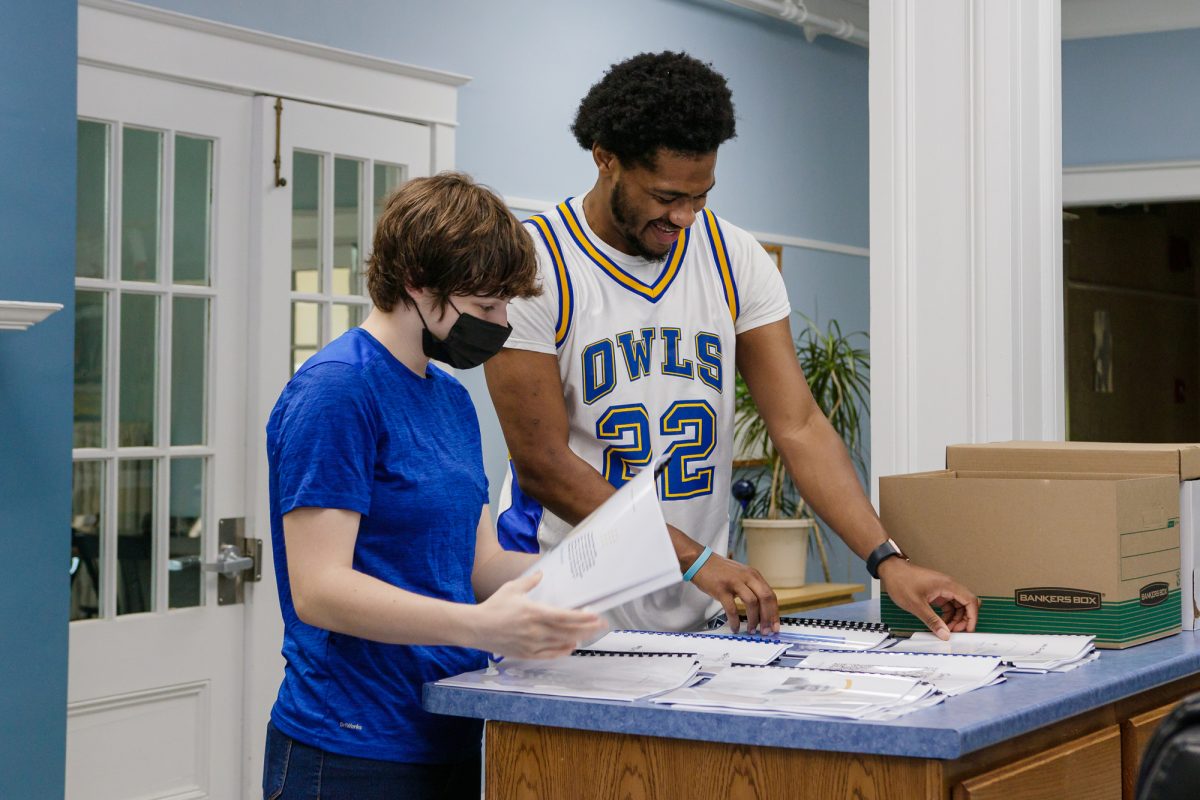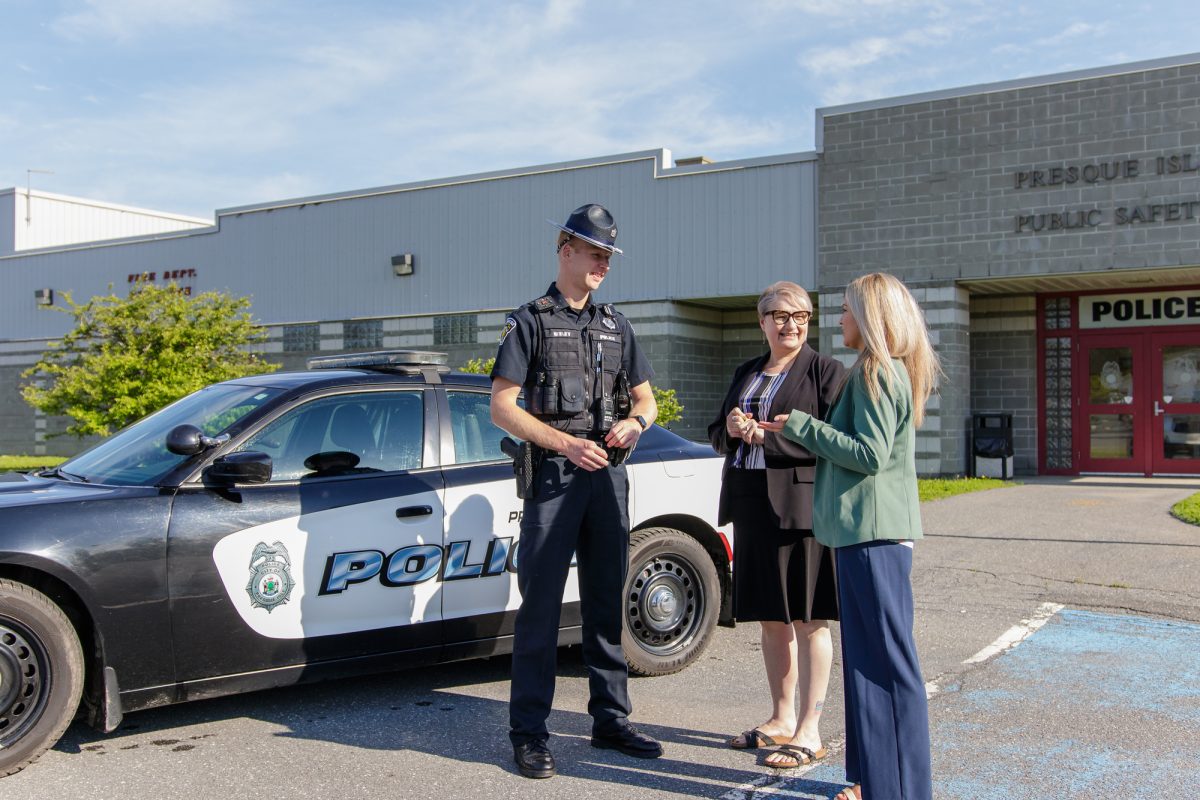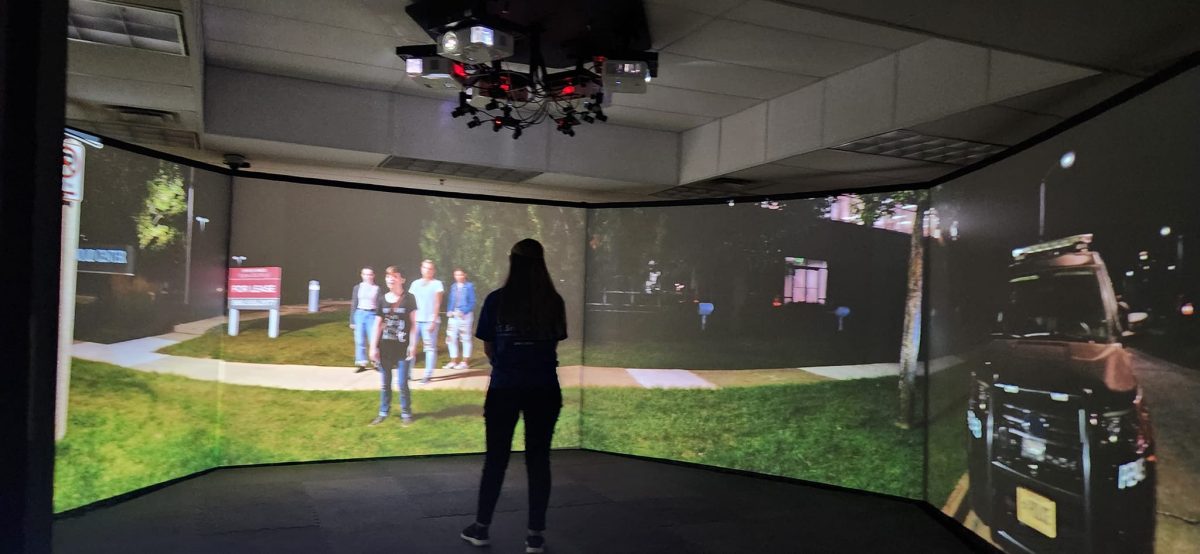Discover UMPI’s Criminal Justice Program
In our program, students will study all aspects of crime and societal reactions to crime. You’ll examine the political, economic, and cultural patterns that shape definitions and theories of crime and influence the policy choices about how to respond to certain categories of crime. You’ll also study social and personal forces that lead to criminal conduct, and analyze the organization and operation of crime control systems. Particular emphasis is placed on the interactions among the many agencies which comprise criminal justice systems and on the relationships between these systems and other facets of society. Our students have the opportunity to complete an internship with a criminal justice agency during senior year and are required to participate in service learning experiences in several courses.
YourPace Criminal Justice
We offer a YourPace Criminal Justice pathway to online degree completion
Program Highlights
Front and Center
In our program, you get the unique opportunity to present at professional Criminal Justice conferences.
Service Learning
Our students learn by doing projects that impact our state, such as efforts meant to help women re-enter society after being incarcerated.

EXPECT generous scholarships
Front and Center
The University of Maine at Presque Isle (UMPI) offers a vibrant platform for professionals in the field of criminal justice to present their work at its esteemed Criminal Justice Program conferences. These conferences provide unique opportunities for professionals to showcase their research, expertise, and innovative approaches to addressing contemporary challenges in the field. Presenters have the chance to engage with fellow practitioners, scholars, and students, fostering valuable networking connections and collaborative partnerships. Additionally, presenting at Criminal Justice conferences offers visibility and recognition within the academic community, contributing to professional development and enhancing credibility in the field. The inclusive and supportive environment at UMPI encourages diverse perspectives and fosters constructive dialogue, making it an ideal setting for meaningful exchange and knowledge sharing among criminal justice professionals.


200 Hours Course
The Criminal Justice Academy Preservice Course is a 200 hour course that qualifies participants to be a part-time or reserve law enforcement officer in the State of Maine (indefinitely); or a full-time officer for no more than one year. UMPI students can get three credit hours of elective transfer credits for the Preservice course.
For more information about this course, please visit the Maine Criminal Justice Academy website.
EXPECT an education tailored to your needs

Unique UMPI Benefits
Our graduates find opportunities in the expanding field of criminal justice at the local, state, and federal levels, as well as the many private and non-profit organizations which provide services or make policy recommendations to traditional criminal justice agencies. The Criminal Justice B.A. also provides a strong foundation for students pursuing graduate work including law school.


Service Learning
UMPI is dedicated to fostering service learning initiatives that have a tangible impact on communities, particularly in Maine. One such impactful project focuses on assisting women in their journey to reintegrate into society after incarceration. Through this initiative, students engage in hands-on service learning experiences that not only enhance their understanding of the criminal justice system but also contribute positively to the lives of individuals affected by it. Students may participate in various activities such as mentoring, providing educational resources, offering job readiness training, and facilitating access to support services. These efforts not only help women navigate the challenges of re-entry but also empower them to build meaningful and productive lives post-incarceration.

Honor Society
The Alpha Phi Sigma Honor Society within the Criminal Justice Program at UMPI represents a prestigious recognition of academic excellence, leadership, and commitment to the field of criminal justice. As the national honor society for students in the field of criminal justice, Alpha Phi Sigma serves as a beacon of achievement and dedication. Members of this esteemed society are drawn from the ranks of top-performing students who have demonstrated exceptional scholarship, integrity, and service within their academic pursuits and beyond.

Criminal Justice Club
Committed to promoting learning, collaboration, and community engagement, the club offers a wide range of activities and initiatives tailored to the interests and goals of its members. Through guest lectures, workshops, field trips, and volunteer opportunities, students involved in the Criminal Justice Club gain valuable insights into various aspects of the criminal justice system, from law enforcement and corrections to juvenile justice and victim advocacy. By fostering connections with professionals in the field and participating in hands-on experiences, students not only enhance their understanding of criminal justice but also prepare themselves for future careers or further academic pursuits.
Learning Outcomes
- Students will have a historical base of knowledge of both criminal justice systems as well as criminological theory.
- Students will be able to consistently connect criminological theory to criminal justice policy, both real and proposed.
- Students will be able to conceptualize and understand the criminal justice system as a loosely coupled set of interconnected elements that is governed by several bureaucratic bodies, and recognize how changes in any of elements of the system influence other parts of the system.
- Students will have a breadth and depth of understanding of the connection of crime and social control to wider social problems, specifically structural inequality around issues of race, class and gender.
- Students will be able to deconstruct and predict repercussions of changes in the system of social control for other social institutions (and vice versa).
- Students will be well-versed in issues of ethics in criminal justice.
- Students will be proficient in practical skills required for positions within criminal justice agencies (critical analysis, abstract writing, problem solving). Specifically, students will be required to demonstrate expertise in the area of interpersonal communication (both oral and written).
Frequently Asked Questions
Alpha Phi Sigma
We are the home of the Alpha Phi Sigma Criminal Justice Honor Society’s Mu Nu Chapter. Chartered in 2011, we are one of 400 Alpha Phi Sigma chapters in the United States.
Founded in 1942 at Washington State University, Alpha Phi Sigma is the only national honor society for criminal justice students. The society recognizes academic excellence of undergraduate and graduate students of criminal justice and is open to those seeking a juris doctorate. A significant benefit extended to Alpha Phi Sigma members is that upon entering federal government service, they receive an honorary pay-grade bump one level higher than their competitors. Academically, Alpha Phi Sigma members represent the top 10 percent of students in their field.
For more information about our Alpha Phi Sigma chapter, contact Dr. Lisa Leduc at 207-768-9436.
Faculty


Lorne Gibson
- Location
- 202 South Hall
- Phone
- (207) 768-9598
- lorne.gibson@maine.edu

Lisa Leduc
- Location
- 200 South Hall
- Phone
- (207) 768-9436
- lisa.leduc@maine.edu
Other Important Links

EXPECT to Finish in Four
Criminal Justice Program Offerings
What can you do with a degree in Criminal Justice?
Next Step: Admissions
We’re so excited that you’re considering the University of Maine at Presque Isle! As a student at UMPI, we want your experience to be anything but ordinary! So what makes UMPI extraordinary? Our Learning Environment, Our Student Engagement and Our Location!
No matter what stage of life you are in, we can help you take the plunge into higher education and put you on YOUR PATH TO SUCCESS!